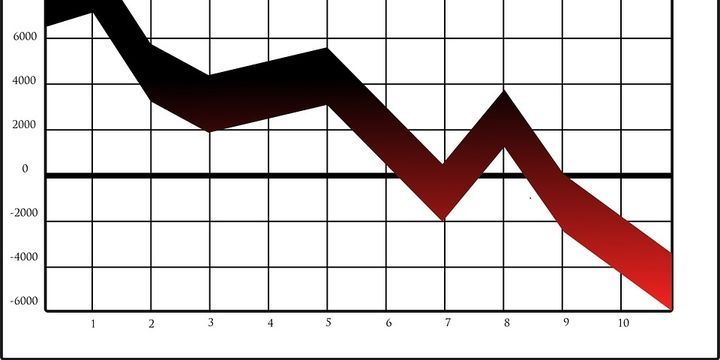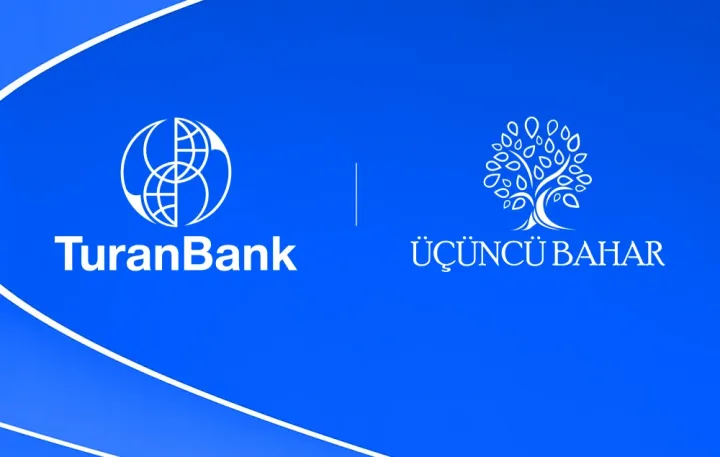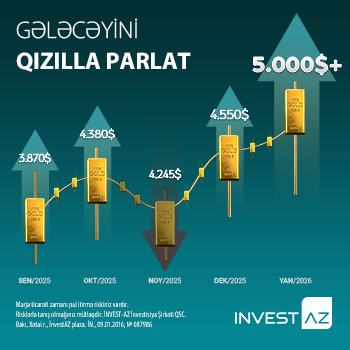Azərbaycanın reytinqinin proqnozu "mənfi"yə düşdü
"Neftin ucuzlaşmasının və koronavirus pandemiyasının yaratdığı şoklar Azərbaycanın xarici buferlərinə mənfi təsir edir və makroiqtisadi sabitliyin pozulması riskini artırıb"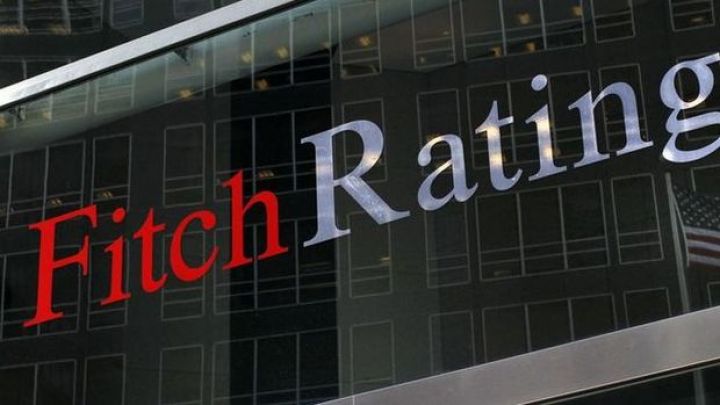
"Fitch” beynəlxalq reytinq agentliyi Azərbaycanın emitentin yerli və xarici valyutada uzunmüddətli defolt reytinqini “BB+” səviyyəsində təsdiq edib. Bu barədə agentliyin məlumatında deyilir.
Reytinqlər üzrə proqnoz “sabit”dən “mənfi”yə dəyişdirilib.
“Mənfi proqnoz neftin qiymətinin ucuzlaşması və COVİD-19 pandemiyasından Azərbaycanın xarici buferləri və makroiqtisadi sabitliyə birləşdirilmiş şokun iqtisadiyyata təsirini əks etdirir”, - məlumatda qeyd olunur.
Agentliyin qiymətləndirmələrinə görə, Azərbaycan hakimiyyəti fevralın sonundan etibarən Brent markalı neftin qiymətinin 32 faiz ucuzlaşmasına baxmayaraq Dolların məzənnəsini 1,7 manat səviyyəsində saxlamağa davam edir, bu da Azərbaycanın neft sektorundan yüksək dərəcədə asılılığı nəzərə alınaraq (ÜDM-in 40%-i), ixracın 90%-i və vergi daxilolmalarının 2/3 hissəsi), xarici təzyiq azalmasa “çox bahalı və qeyri-sabitdir”.
“Fitch” qeyd edir ki, 2020-ci ilin əvvəlindən Dövlət Neft Fondu (ARDNF) valyuta hərraclarında 2,9 milyard dollar, həmçinin martda - 1,9 milyard dollar valyuta satıb. Ümumilikdə, ARDNF 2020-ci ildə satmağa ümid etdiyi xarici valyutanıln 45%-ni artıq satıb.
Agentlik vurğulayır ki, hərraclarda xarici valyuta satışlarının həcmləri 2020-ci il martın 10-da pik həddə çatıb (323 milyon dolar), lakin bu dövrdən etibarən müntəzəm olaraq azalıb və aprelin 9-da hərracda 55 milyon dollar təşkil edib. “AMB və ARDNF-nin valyuta ehtiyatlarının daxil olduğu suveren xarici aktivlər yüksəkdir və 2019-cu ilin sonuna 49,5 milyard dollar təşkil edir”, - məlumatda deyilir.
Eyni zamanda, agentlik depozitlərin dollarlaşması (2019-cu ilin sonuna 61%) və kreditlərin dollarlaşmasının (35%) yüksək səviyəsini qeyd edir. “2015-ci ilin böhranından sonra dollarlaşmanın səviyyəsi azalıb, lakin 2014-cü ilədək göstəricilərindən yüksək səviyyədə qalır və milli valyutanın devasiyası zamanı potensial təsiri gücləndirir”, - məlumatda vurğulanır.
“Fitch”in analitikləri hesab edirlər ki, neftin qiymətinin ucuzlaşması Azərbaycanda cari əməliyyatlar hesabının saldosunun mühüm dərəcədə pisləşməsinə gətirəcək.
“Fitch” hesab edir ki, koronavirusun yayılması və neftin qiymətinin ucuzlaşması bankların aktivlərinin keyfiyyətinə təsir göstərəcək. “Azərbaycanda banklar 2015-ci ildə devalvasiyadan sonra meydana gələn aktivlərin keyfiyyəti ilə bağlı problemlərdən sonra hələ də bərpa olunurlar, lakin zəif olaraq qalırlar. 2017-ci ildə borcunun təkrar strukturlaşdırılmasından sonra ABB iri kapital buferləri və aktivlərin keyfiyyətinin yaxşılaşması ilə gəlirliliyə qayıtdı. Lakin, 2017-ci ildə 1,9 milyard dollar açıq valyuta mövqeyinin azalmasına baxmayaraq, hecləşdirilməmiş mövqeyi iri olaraq qalır və 2020-ci ilin fevral ayında 0,8 milyard dollar təşkil edir”, - məlumatda bildirilir.
Agentliyin qiymətləndirmələri görə, Azərbaycan Dünya Bankının “Biznesin asan aparılması” göstəricilərində müehüm irəliləyişə nail olub, lakin iqtisadiyyatın şaxələndirilməsi məqsədilə mühüm həcmdə qeyri-neft birbaşa xarici investisiyaların cəlb olunması qabiliyyəti qeyri-müəyyən olaraq qalır.
XXX
Fitch Ratings has revised its Outlook on Azerbaijan's Long-Term Foreign-Currency Issuer Default Rating (IDR) to Negative from Stable and affirmed the IDR at 'BB+'.
Under EU credit rating agency (CRA) regulation, the publication of sovereign reviews is subject to restrictions and must take place according to a published schedule, except where it is necessary for CRAs to deviate from this in order to comply with their legal obligations. Fitch interprets this provision as allowing us to publish a rating review in situations where there is a material change in the creditworthiness of the issuer that we believe makes it inappropriate for us to wait until the next scheduled review date to update the rating or Outlook/Watch status. The next scheduled review date for Fitch's sovereign rating on Azerbaijan will be 17 July 2020, but Fitch believes that developments in the country warrant such a deviation from the calendar and our rationale for this is laid out below.
KEY RATING DRIVERS
The revision of the Outlook reflects the following key rating drivers and their relative weights:-
High
The Negative Outlook reflects the impact of the combined shock from the slump in oil prices and the COVID-19 pandemic on Azerbaijan's external buffers and increased risk of a disruptive macroeconomic adjustment. The authorities' persistent defence of the 1.7 AZN/USD exchange rate despite a 32% fall in Brent oil prices since end-February is proving costly and appears unsustainable if external pressures fail to ease, given Azerbaijan's high dependence on the oil sector with hydrocarbons accounting for roughly 40% of GDP, 90% of exports, and two-thirds of fiscal revenues.
The state oil-fund SOFAZ has sold USD2.9 billion in FX auctions in the year-to-date, with USD1.9 billion auctioned in March 2020 alone. SOFAZ FX sales to date represent 45% of its USD6.7 billion authorised transfers to the budget for 2020. A change in the budget law would be required to authorise further FX sales beyond the annual envelope.
Central Bank of Azerbaijan-reported FX reserves rose slightly to USD6.4 billion at end-March 2020, from USD6.3 billion at end-2019, but have remained below four months of current external payments (CXP) since the last oil price shock. The volume of FX sold in individual adhoc and regular auctions peaked on 10 March 2020 (USD323 million) and have since fallen steadily to USD55 million on 9 April 2020. However, even at this reduced demand, the pace of FX sales would require continued drawdown of external assets, albeit from a high level, to defend the manat under a low oil price environment. Sovereign foreign assets comprising FX reserves of CBA and SOFAZ assets are large at USD49.5 billion at end-2019, or 27 months of CXP.
The lack of predictability and transparency of policy-making exacerbates the risk of policy missteps and a disruptive policy adjustment reminiscent of Azerbaijan's experience in the 2014-2015 oil price shock. Deposit dollarisation (61% at end-2019) and loan dollarisation (35%) ratios have declined since the 2015 crisis, but remain above their pre-2014 levels and accentuate the potential impact of a disorderly devaluation.
The fall in oil prices will lead to a significant worsening in Azerbaijan's current account balance due to the high share of commodity exports at 67% of current account receipts. Fitch forecasts the current account to move from a surplus of 9.3% in 2019 to a 2.8% of GDP deficit in 2020, as the goods trade surplus narrows to 5% of GDP from 18% in 2019. The current account should recover to a surplus of 5.2% of GDP in 2021 as oil prices and global demand recovers.
Medium
Public health measures to contain the spread of the COVID-19 infection and the sharp fall in oil prices will result in a contraction in economic activity. Fitch forecasts real GDP growth to contract by 4.8% in 2020 as incomes, consumption and non-oil activity are hit by the restriction of movement and extended holidays. We project real GDP growth then grows 2.5% in 2021 as oil prices and aggregate demand recover. The growth shock will be partly mitigated by ongoing government packages announced in 2019 and also AZN2.5 billion (USD1.5 billion) in support measures recently announced by the government to support households and businesses. Production and investment in oil and gas sectors are likely to fall at prolonged low oil prices.
Fitch forecasts the consolidated fiscal balance deteriorates to -6.8% of GDP in 2020 (implied fiscal break-even oil price of USD50.5/b) from 4.4% during our January 2020 review. The sharp fall in oil prices will greatly reduce oil fiscal revenues flowing into SOFAZ, while automatic stabilisers are expected to increase current spending on social payments and benefits as the unemployment rate rises to 8% from 5.0% in 2019. Fitch anticipates the fiscal rules are temporarily suspended to allow the government to respond to the crisis and then fiscal policy is tightened in line with the fiscal rules beyond the near-term shock.
Azerbaijan's 'BB+' IDRs also reflect the following key rating drivers:
Fiscal and external buffers are stand-out strengths relative to the 'BB' and 'BBB' medians. Gross general government debt is very low at 19.1% of GDP in 2019, (current 'BB' median of 45.7%). Government on-lending and guarantees of 31% of GDP at end-3Q19 accruing to the largest state-owned bank International Bank of Azerbaijan's (IBA) (B-/Stable) restructuring and to gas investment projects are a large contingent liability. We forecast government debt/GDP to rise to 23.8% to finance part of the government support measures during the COVID-19 crisis, before narrowing to 22.2% of GDP in 2021.
Fitch believes that banks' asset quality will be pressured by the coronavirus outbreak and the lower oil prices. Banks in Azerbaijan are still recovering from legacy asset quality problems since the 2015 devaluations, but remain weak, as reflected by its Fitch Banking System Indicator (BSI) score of 'b'. Aggregate banking sector NPLs continue to be higher than similarly rated peers' at 11% at end-October 2019. Following a debt restructuring in 2017, IBA has returned to profitability with large capital buffers and improved asset quality. However, despite reducing its open currency position from USD1.9 billion in 2017, the unhedged position remains large at USD0.8 billion in February 2020.
Azerbaijan has made significant progress in the World Bank Ease of Doing Business indicators to rank 87 percentile of Fitch-rated sovereigns in 2019, from 70 percentile in 2018, but the ability to attract significant non-oil FDI to diversify the economy away from hydrocarbons remains uncertain. The long-standing conflict with Armenia over Nagorno-Karabakh has the potential to escalate, although recent meetings between officials from both countries signal a possibility for easing of tensions.
ESG
ESG - Governance: Azerbaijan has an ESG Relevance Score (RS) of 5 for both Political Stability and Rights and for the Rule of Law, Institutional and Regulatory Quality and Control of Corruption, as is the case for all sovereigns. Theses scores reflect the high weight that the World Bank Governance Indicators (WBGI) have in our proprietary Sovereign Rating Model. Azerbaijan has a low WBGI ranking at 28 percentile, reflecting very poor voice and accountability, relatively weak rights for participation in the political process, uneven application of the rule of law and a high level of corruption.
SOVEREIGN RATING MODEL (SRM) AND QUALITATIVE OVERLAY (QO)
Fitch's proprietary SRM assigns Azerbaijan a score equivalent to a rating of 'BB' on the Long-Term Foreign-Currency (LT FC) IDR scale.
Fitch's sovereign rating committee adjusted the output from the SRM to arrive at the final LT FC IDR by applying its QO, relative to rated peers, as follows:
- External Finances: +1 notch, to reflect large SOFAZ assets, which underpin Azerbaijan's exceptionally strong foreign currency liquidity position and the very large net external creditor position of the country.
Fitch's SRM is the agency's proprietary multiple regression rating model that employs 18 variables based on three-year centred averages, including one year of forecasts, to produce a score equivalent to a LT FC IDR. Fitch's QO is a forward-looking qualitative framework designed to allow for adjustment to the SRM output to assign the final rating, reflecting factors within our criteria that are not fully quantifiable and/or not fully reflected in the SRM.
RATING SENSITIVITIES
The main factors that could, individually or collectively, lead to negative rating action/downgrade:
- Developments in the economic policy framework that undermine macroeconomic stability, e.g. rapid erosion of the sovereign's external balance sheet or disorderly devaluation of the manat exchange rate.
- Sustained low oil prices or a more prolonged external shock that would have a significant adverse effect on the economy, banking sector, public finances or the external position.
The main factors that could, individually or collectively, lead to positive rating action/upgrade are:
- Easing of external pressures stabilising the public and external balance sheets, e.g. from higher oil prices.
- Improvement in the macroeconomic policy framework, including exchange rate policy, that strengthens the country's ability to address external shocks and reduces macro volatility.
BEST/WORST CASE RATING SCENARIO
Ratings of Public Finance issuers have a best-case rating upgrade scenario (defined as the 99th percentile of rating transitions, measured in a positive direction) of three notches over a three-year rating horizon; and a worst-case rating downgrade scenario (defined as the 99th percentile of rating transitions, measured in a negative direction) of three notches over three years. The complete span of best- and worst-case scenario credit ratings for all rating categories ranges from 'AAA' to 'D'. Best- and worst-case scenario credit ratings are based on historical performance. For more information about the methodology used to determine sector-specific best- and worst-case scenario credit ratings https://www.fitchratings.com/site/re/10111579.
KEY ASSUMPTIONS
Fitch forecasts Brent Crude to average USD35.0/b in 2020 and USD 45.0/b in 2021. Fitch notes that there is an unusually high level of uncertainty around them and that risks are firmly to the downside.
Fitch assumes that Azerbaijan will continue to experience broad social and political stability and that there will be no prolonged escalation in the conflict with Armenia over Nagorno-Karabakh to a degree that would affect economic and financial stability.
REFERENCES FOR SUBSTANTIALLY MATERIAL SOURCE CITED AS KEY DRIVER OF RATING
The principal sources of information used in the analysis are described in the Applicable Criteria.
ESG CONSIDERATIONS
Azerbaijan has an ESG Relevance Score of 5 for Political Stability and Rights as World Bank Governance Indicators have the highest weight in Fitch's SRM and are highly relevant to the rating and a key rating driver with a high weight.
Azerbaijan has an ESG Relevance Score of 5 for Rule of Law, Institutional & Regulatory Quality and Control of Corruption as World Bank Governance Indicators have the highest weight in Fitch's SRM and are therefore highly relevant to the rating and are a key rating driver with a high weight.
Azerbaijan has an ESG Relevance Score of 4 for Human Rights and Political Freedoms as strong social stability and voice and accountability are reflected in the World Bank Governance Indicators that have the highest weight in the SRM. They are relevant to the rating and a rating driver.
Azerbaijan has an ESG Relevance Score of 4 for Creditor Rights as willingness to service and repay debt is relevant to the rating and is a rating driver for Azerbaijan, as for all sovereigns.
Except for the matters discussed above, the highest level of ESG credit relevance, if present, is a score of 3. This means ESG issues are credit-neutral or have only a minimal credit impact on the entity(ies), either due to their nature or to the way in which they are being managed by the entity(ies). For more information on Fitch's ESG Relevance Scores, visit www.fitchratings.com/esg.
RATING ACTIONS | |||||
ENTITY/DEBT | RATING | PRIOR | |||
Azerbaijan | LT IDR | BB+ | Affirmed | BB+ | |
ST IDR | B | Affirmed | B | ||
LC LT IDR | BB+ | Affirmed | BB+ | ||
LC ST IDR | B | Affirmed | B | ||
Country Ceiling | BB+ | Affirmed | BB+ | ||
senior unsecured | LT | BB+ | Affirmed | BB+ | |
APA, Fitch
Müştərilərin xəbərləri
SON XƏBƏRLƏR
- 1 ay sonra
- 2 həftə sonra
-
3 gün sonra
Bazara iki istiqraz çıxarılır - Dollar ilə 9%, Manat ilə 14% gəlir təklifi
-

-
5 saat əvvəl
"TRIPP layihəsi Azərbaycana əlavə iqtisadi imkanlar yaradacaq"
-
5 saat əvvəl
Azərbaycan və ABŞ Strateji Tərəfdaşlıq Xartiyasını imzaladı - TAM VERSİYA
-
6 saat əvvəl
ABŞ-ın Vitse-prezidenti ilə məhdud və geniş tərkibdə görüş keçirilib
-
7 saat əvvəl
Asiya bankı Bakı metrosu ilə bağlı 180 milyon dollarlıq krediti təsdiqlədi
- 7 saat əvvəl
-
7 saat əvvəl
Dövlət Vergi Xidmətinin baş idarə rəisi vəzifəsindən azad edilib
- 8 saat əvvəl
- 8 saat əvvəl
-
8 saat əvvəl
Fransanın iri bankı da qızılın qiymətinin 6 min dollara çatacağını nəzərdə tutur
Son Xəbərlər

Azərbaycanda Vakansiyalar - Azvak.az
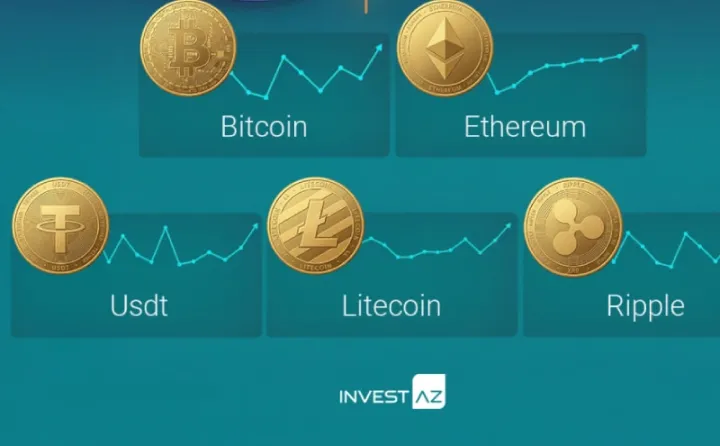
Kriptovalyuta ticarəti kursu

"TRIPP layihəsi Azərbaycana əlavə iqtisadi imkanlar yaradacaq"

ABŞ-ın Vitse-prezidenti ilə məhdud və geniş tərkibdə görüş keçirilib

ABŞ-ın vitse-prezidenti Azərbaycana gəldi

Dövlət Vergi Xidmətinin baş idarə rəisi vəzifəsindən azad edilib
Ən çox oxunanlar

Dövlət Agentliyinin sədrinə yeni müavinlər təyin edilib

Dollların sabah üçün rəsmi məzənnəsi müəyyən olunub

"CFI Financial İnvestisiya Şirkəti"ndə yeni təyinat

ABŞ-ın vitse-prezidenti Azərbaycana səfərə yola düşüb

Azərbaycanın pivə şirkətinin Gürcüstana ixracında böyük artım











